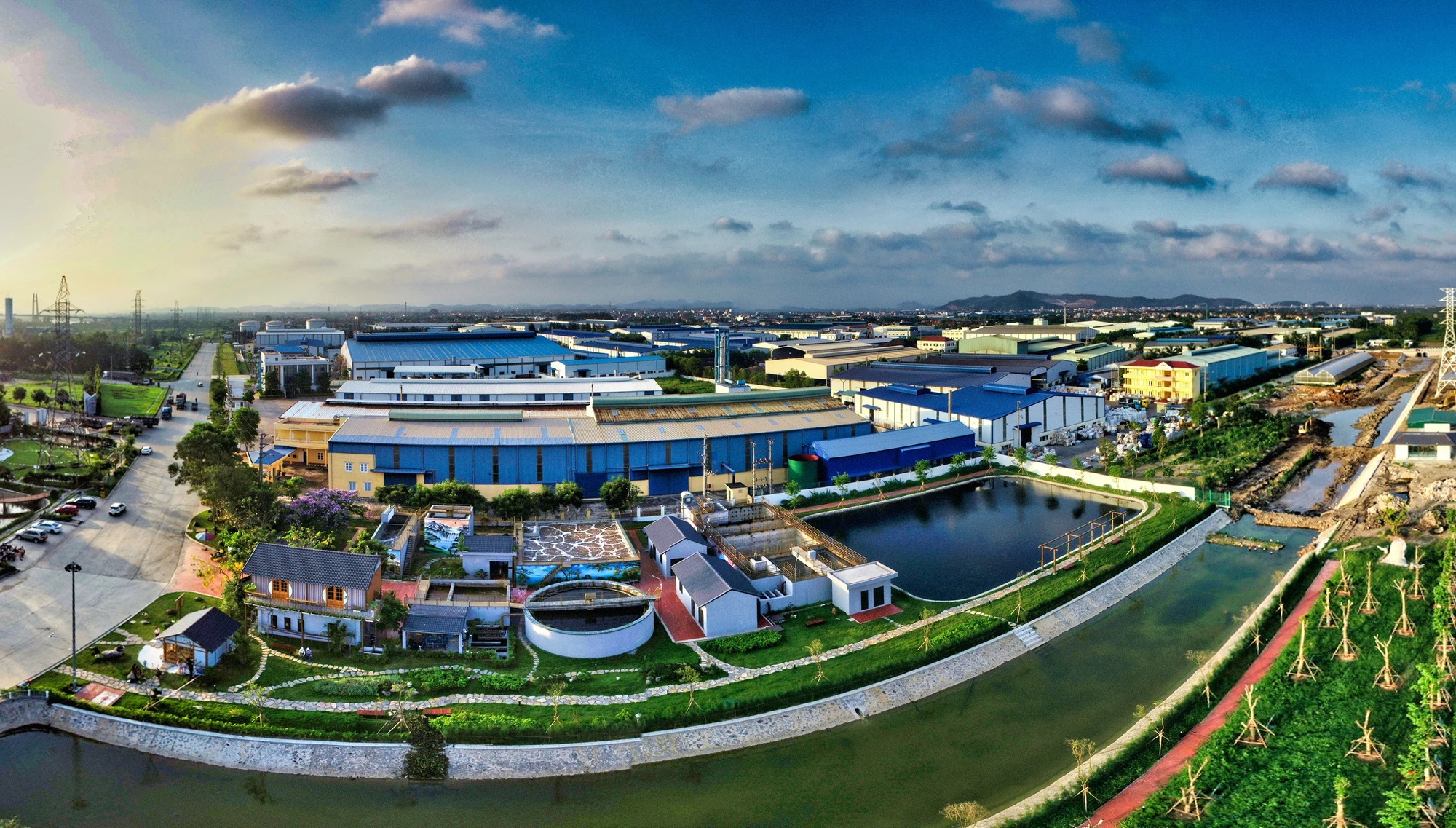
Resolution 68 is the crystallization of a profound process of innovation in thinking, laying a solid foundation for the private economic sector to make a breakthrough. (Photo: Vietnam+)
Foreword
In the unceasing flow of Vietnam's economic history during the Doi Moi period, the birth of Resolution No. 68-NQ/TW of the Politburo (May 4, 2025) was like a strong "push", a solid "runway", igniting great confidence and aspirations for the private economy.
Specifically, Resolution No. 68-NQ/TW of the Politburo on private economic development is truly a strategic historical milestone, demonstrating the strong political determination and consensus of the Party, Government and National Assembly in creating a prosperous future for the Vietnamese economy. Resolution 68 is the crystallization of a profound process of innovation in thinking, laying a solid foundation for the private economic sector to make a breakthrough. With clear directions on institutional improvement, improving the business environment, creating conditions for equal access to resources and especially strengthening the protection of legitimate rights of enterprises, Resolution 68 has opened a new era for the private economic sector.
The historical value of the Resolution lies not only in recognizing the role but also in clearing "bottlenecks", igniting the belief and aspiration to contribute to millions of entrepreneurs, creating a strong driving force for the private economy to truly become the leading locomotive, contributing to realizing the goal of building a strong, self-reliant and sustainably developed Vietnam.
Affirming that "The private economy is the most important driving force of the national economy, a pioneer in the development of science and technology, innovation and digital transformation", the Resolution acknowledged at the highest level an arduous journey of the rise and affirmation of the position of the private economic sector. From the tentative steps, burdened with the thoughts of a "supplementary force" with many doubts, this economic sector has steadfastly "transformed", risen to become an "important driving force" and more than that, the "most important driving force" of the national economy.
This is not only a change in policy, but also evidence of a revolution in thinking, a profound transformation in the awareness of the Party, the State and the whole society about the indispensable role of people who dare to think, dare to do, dare to contribute to the prosperity of the country. The National Assembly has strongly intervened with concrete actions, institutionalizing the Party's policies on access to resources, more open bankruptcy procedures, limiting the criminalization of economic relations and prioritizing innovative enterprises, to special preferential policies for disadvantaged areas, developing supporting industries and training high-quality human resources, connecting economic sectors.
When the mechanism is "unleashed" and confidence is rekindled, private enterprises, from "leading cranes" to small and medium enterprises, are ready for bold plans.
The journey of Vietnam's private economy is a symbol of perseverance, innovation and aspiration to contribute. From silent "traders" to future "creators", entrepreneurs and private enterprises have been writing stories about the strong vitality of the country's economy. With historic policy "pushes", especially Resolution 68, along with the consensus of the entire political system and the trust of the whole society, we have the right to hope for a new era, where private enterprises are not only "large" in quantity but also "strong" in quality, truly becoming the "leading cranes" leading the Vietnamese economy to take off, realizing the aspiration to build a prosperous and powerful nation.
The road ahead is still full of challenges, but with the fire of faith and iron will, Vietnam's private economy will certainly continue to write new miracles.
With the desire to provide readers with a comprehensive and in-depth view of this challenging transition process, VietnamPlus Electronic Newspaper respectfully introduces the series of articles "Resolution 68 and the historic mission of the private economy".
Lesson 1: Private economy: The journey of "transformation" from a supplementary force to an important driving force
The rise of the private economy in Vietnam is evidence of a "revolution" in thinking and policy. From being considered a "supplementary force" that was subject to many doubts, the private economy has gradually affirmed its position as an "important driving force" of the economy, as recognized in the Constitution and important documents of the Party.
This journey is a profound transformation, marked by important resolutions, from Resolution 10 (1988) that initiated the renovation, to the landmark Resolution 10 (2017) and culminating in Resolution 68/NQ-CP (2025), considered a key "push", paving the way for the private economy to develop strongly.
From doubt to role affirmation
The change in the Party's viewpoint on the private economy is not simply a policy adjustment but also a fundamental change in the perception of the role of economic sectors in the process of national construction and development.
The opening of thinking began with Resolution 10-NQ/TW (April 5, 1988), which was likened to "Contract 10" with the first command to open the door to economic innovation thinking in Vietnam. This was a breakthrough step, creating an important premise to re-evaluate the role of economic sectors outside the state sector. Although it did not directly mention the private economy in a comprehensive way, the Resolution indirectly acknowledged and highly appreciated the effectiveness of the household economy, a primitive form of the private economy. This recognition was the beginning of a process of profound change in the perspective on the role of economic sectors outside the state sector.

The opening of thinking began with Resolution 10-NQ/TW (April 5, 1988), which is considered as "Contract 10" with the first command opening the door for economic innovation thinking in Vietnam. (Photo: Vietnam+)
Dr. Phan Duc Hieu, a full-time member of the National Assembly's Economic and Financial Committee, emphasized: "Before 1988, the private economy was subject to reform and was not recognized. However, the Law on Enterprises (1990) for the first time officially recognized the development of this economic sector. This is a very important milestone."
The second milestone, Mr. Hieu pointed out, Vietnam had the Enterprise Law (2000), which was a merger of the company law and the private enterprise law. After that, Resolution 21/NQ-TW (January 20, 2003) was issued, focusing on continuing to innovate, develop, and improve the efficiency of the collective economy. However, this Resolution mentioned the private economy with a more open attitude and emphasized "developing diverse forms of ownership," including the private economy. At this stage, although the private economy was still viewed as a supplement to the State economy, this demonstrated a positive change in the Party's thinking. Recognizing and encouraging the development of the private economy, even if only at the "supplementary" level, was still an important step in the transformation process.
The Enterprise Law began to apply the principle of “freedom of business in what is not prohibited by law,” and at the same time, the basic procedures for establishing a business became easier.
Mr. Hieu analyzed that the Enterprise Law began to apply the principle of “freedom of business in what is not prohibited by law,” along with that the basic procedures for establishing a business have become easier. He emphasized that this is the premise for building the private enterprise force today.
Next is the historical turning point, Resolution 10-NQ/TW (June 3, 2017) marked the innovation in the Party's thinking on the private economy. For the first time, the private economy was affirmed as "an important driving force" of the economy. According to experts, this is a revolutionary change, reflecting a profound change in the perception of the role of the private economy in the country's socio-economic development process. Specifically, Resolution 10 clearly defines the goals, tasks and solutions to develop the private economy in a comprehensive and sustainable manner. On that basis, the Resolution emphasizes creating an equal business environment, healthy competition among economic sectors, opening up greater development opportunities for the private economic sector.
The 13th National Party Congress (2021) continues to affirm the important role of the private economy and sets a target that by 2025, the private economy will contribute about 55% of GDP. The Congress also emphasizes the improvement of institutions and the creation of a favorable business environment for the private economy to develop more strongly. The 13th National Party Congress documents emphasize: "Developing the private economy is truly an important driving force of the economy." The above process demonstrates the consistency in the Party's viewpoint, from Resolution 10 (2017) to the 13th National Party Congress. This shows a high determination in creating conditions for the private economy to fully exploit its potential, contributing to the sustainable development of the country.
Dr. Nguyen Dinh Cung, former Director of the Central Institute for Economic Management, emphasized that 1990 was the starting point of the development of today's Vietnamese business community. At that time, the existence, operation and development of private enterprises were officially recognized legally. This was also the time when the subsidy for state-owned enterprises was basically abolished. Accordingly, state-owned enterprises began to be transformed and autonomously operated according to market principles.
Mr. Cung emphasized: “Over the past three decades, the business community of all economic sectors has continuously developed in both quantity and quality, gradually becoming the “central” force of the economy. However, the Vietnamese business community is still not unified, not connected to each other, and even clearly separated from each other. Specifically, foreign direct investment enterprises have very little connection with domestic enterprises. In addition, state-owned enterprises do not have many close links with domestic private enterprises."

Over the past three decades, the business community of all economic sectors has continuously developed in both quantity and quality, gradually becoming the "central" force of the economy. (Photo: Vietnam+)
"The push" for a breakthrough
The development of the private economy in Vietnam is a long process, reflecting a profound change in the Party's thinking about the role of economic sectors. From being doubted, the private economy has gradually been affirmed as an "important driving force" of the economy, institutionalized in the Constitution and important documents of the Party.
According to Secretary of the Party Central Committee and Head of the Central Policy and Strategy Commission Tran Luu Quang, solutions to facilitate private economic development require synchronization, substance and feasibility.
But one of the most important points is to create a fair and equal legal environment in accessing resources and investment and business opportunities for enterprises, including private enterprises.
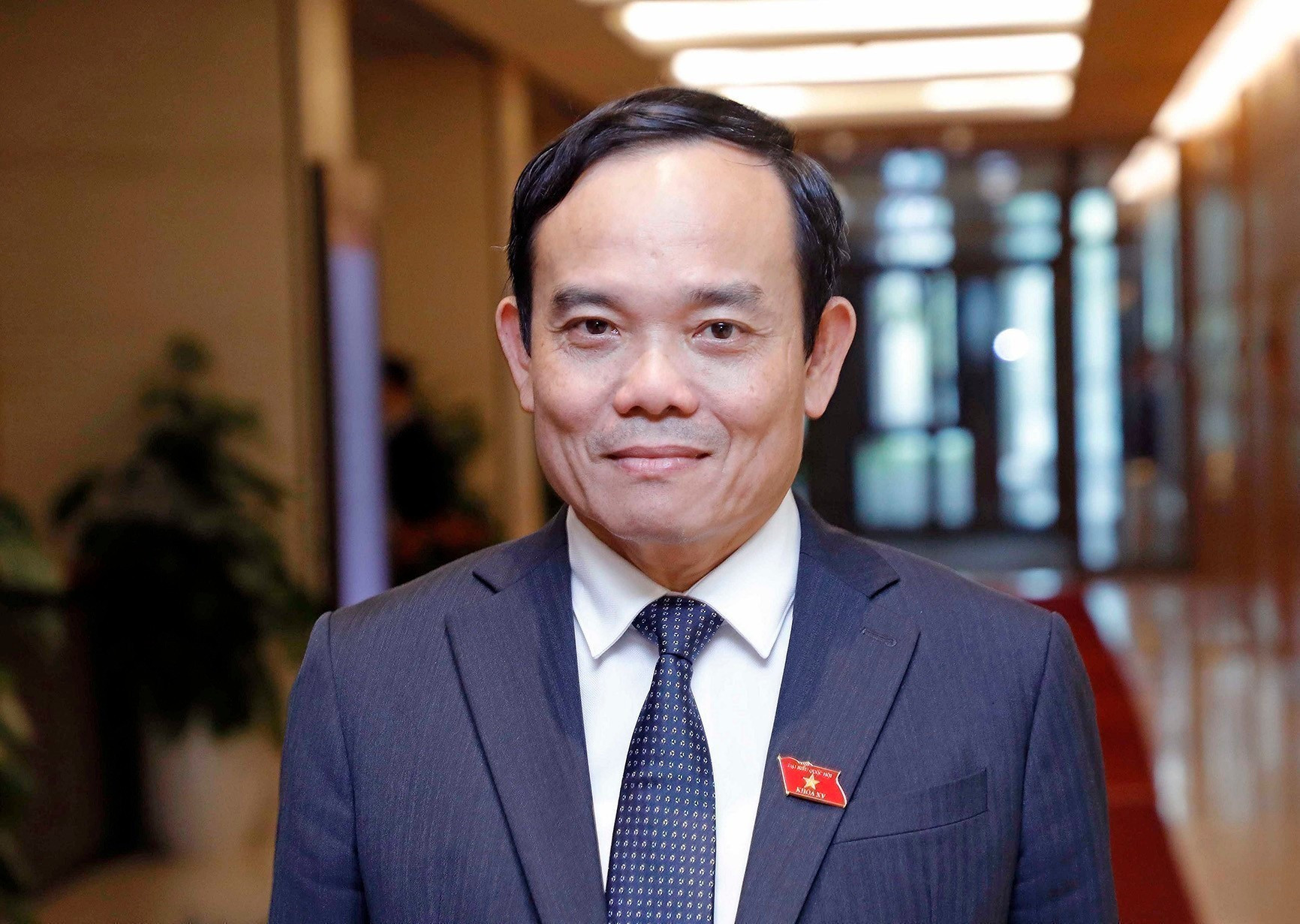
Head of the Central Policy and Strategy Committee Tran Luu Quang emphasized that solutions to facilitate private economic development require synchronization, substance and feasibility. (Photo: Vietnam+)
In particular, the regulations on bidding and conditions for participation in large projects and projects in key economic sectors need to be innovated and improved in the spirit of openness and equality, allowing for wider participation of the private economic sector while nurturing and promoting the formation and development of large-scale private enterprises capable of effectively participating in the country's strategic sectors through mechanisms and policies, such as forming medium- and long-term capital channels to serve large-scale, high-tech projects, reducing dependence on short-term credit from banks; Developing an effective and transparent corporate bond market; Continuing to innovate the public-private partnership mechanism, applying the counterpart capital mechanism to private enterprises in investing in key strategic projects such as high technology, R&D, strategic infrastructure such as data centers, energy batteries, smart ports, etc.
The Politburo issued Resolution No. 68-NQ/TW (dated May 4, 2025) on private economic development. Resolution 68-NQ/TW is considered a "runway" long enough and solid enough for the private economic sector to "take off" and fully exploit its potential.
Mr. Tran Luu Quang emphasized that the guiding thoughts of General Secretary To Lam have created important and clear changes, reflected in the willingness of a number of private enterprises and economic groups to participate in a number of key national projects in areas such as roads, North-South high-speed railways, urban railways, energy, digital transformation infrastructure, etc. Along with that, facilitating the connection and cooperation process between private enterprises with each other and with State-owned enterprises and FDI enterprises needs to be emphasized through specific incentive and support mechanisms and policies from the State, especially mechanisms and policies to promote technology transfer, forming value chains and industry clusters.
In a new development stage with intertwined opportunities and challenges, the Politburo issued Resolution No. 68-NQ/TW (dated May 4, 2025) on private economic development. Resolution 68-NQ/TW is considered a "runway" long enough and solid enough for the private economic sector to "take off" and fully exploit its potential.
Specifically, the Resolution strongly affirms: "The private economy is the most important driving force of the national economy, a pioneering force in science and technology development, innovation and digital transformation." This is a worthy recognition and sets great expectations for this economic sector.
According to Dr. Phan Duc Hieu, Resolution 68 is different from previous reforms in that it not only focuses on facilitating business operations but also pays special attention to strengthening business protection. Specifically, Resolution 68 emphasizes reducing inspections, checks and criminalizing civil and economic violations. In addition, the Resolution also focuses on unlocking resources and creating conditions for business development.
The development journey of the private economy in Vietnam is a story of innovation, of changes in thinking and policy. From being doubted, the private economy has become an "important driving force" of the economy, institutionalized in the Constitution and Party documents. To date, Resolution 68/NQ-CP is an important "push", creating new momentum for the development of the private economy.
However, in order for the private economy to truly develop its full potential, Mr. Hieu emphasized the need to continue perfecting institutions, improving the business environment, enhancing competitiveness and building trust for businesses. /.
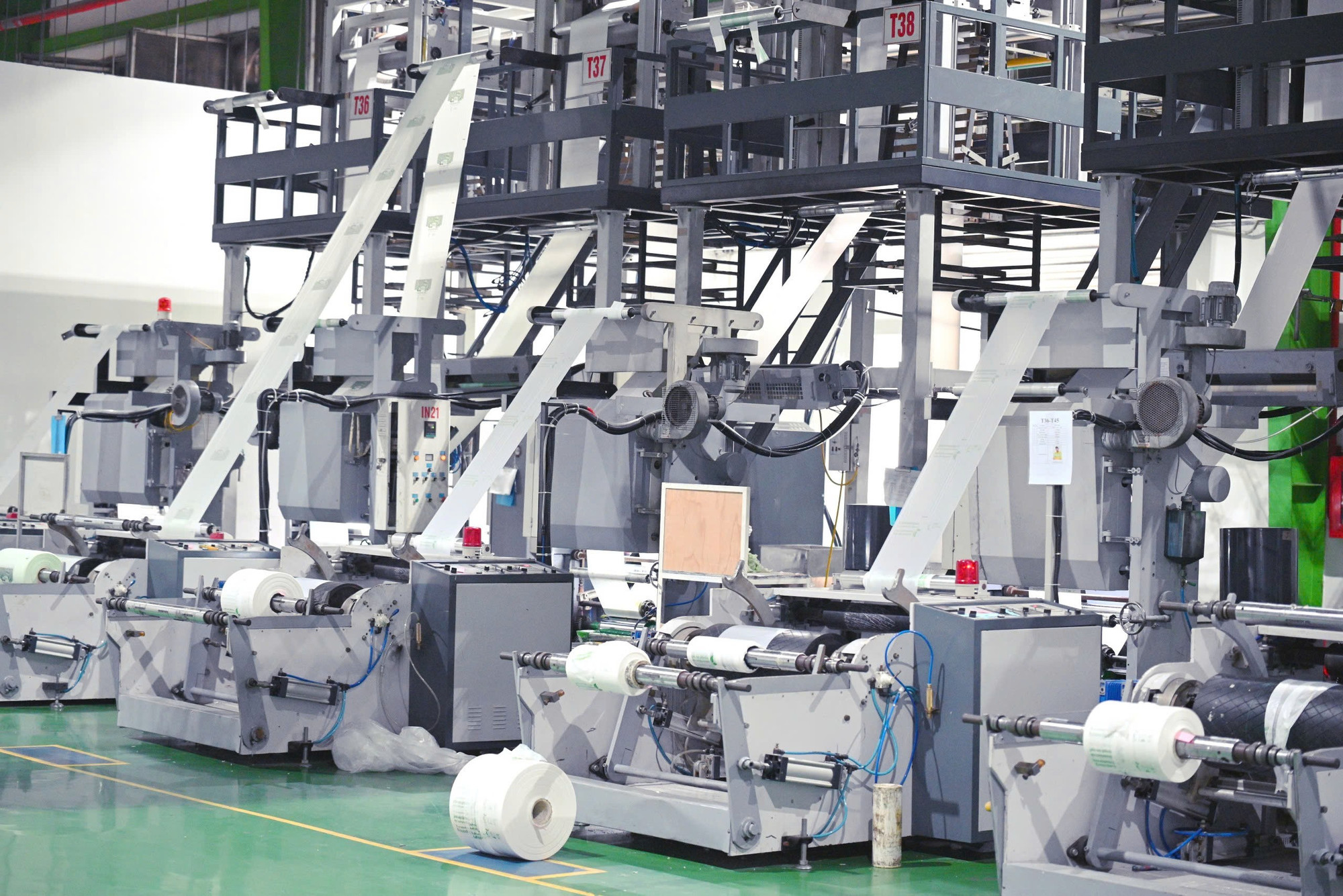
(Vietnam+)
Source: https://www.vietnamplus.vn/kinh-te-tu-nhanh-trinh-lot-xac-tu-luc-luong-bo-sung-den-dong-luc-quan-trong-post1047539.vnp


![[Photo] 60th Anniversary of the Founding of the Vietnam Association of Photographic Artists](/_next/image?url=https%3A%2F%2Fvphoto.vietnam.vn%2Fthumb%2F1200x675%2Fvietnam%2Fresource%2FIMAGE%2F2025%2F12%2F05%2F1764935864512_a1-bnd-0841-9740-jpg.webp&w=3840&q=75)



![[Photo] National Assembly Chairman Tran Thanh Man attends the VinFuture 2025 Award Ceremony](/_next/image?url=https%3A%2F%2Fvphoto.vietnam.vn%2Fthumb%2F1200x675%2Fvietnam%2Fresource%2FIMAGE%2F2025%2F12%2F05%2F1764951162416_2628509768338816493-6995-jpg.webp&w=3840&q=75)

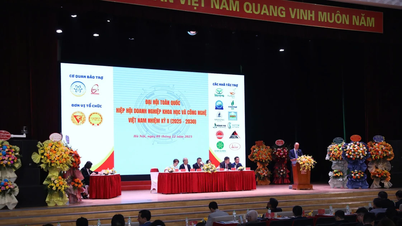


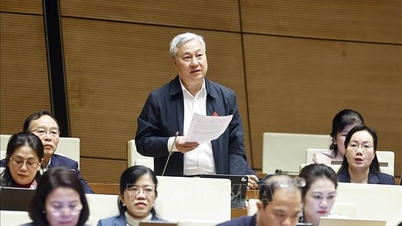

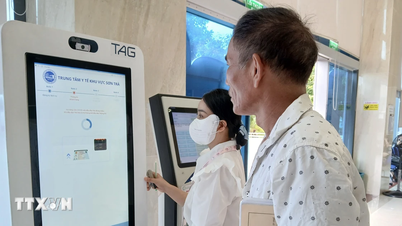
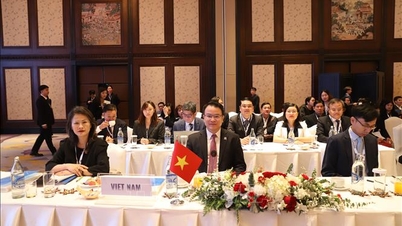
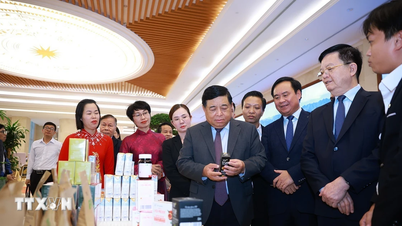
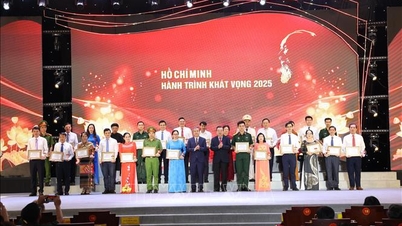











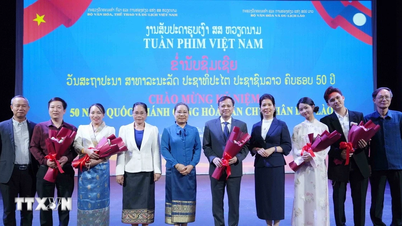




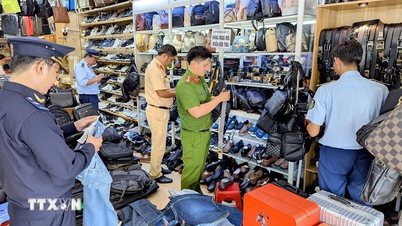
















































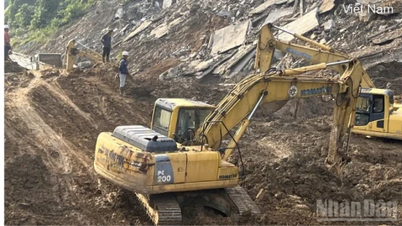

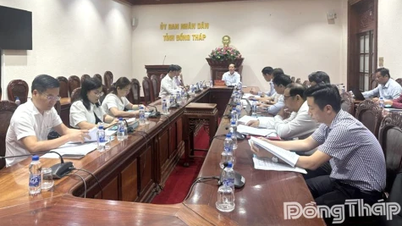




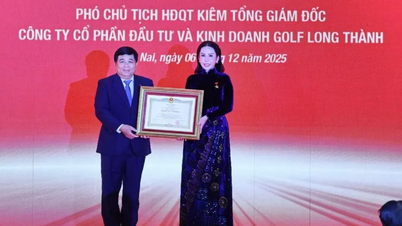

















Comment (0)